
In this lesson we'll introduce you to some of our school rules.
Sometimes we'll give you permission to break some of these rules.
But kids who break our school rules without permission get beaten, as you will see.

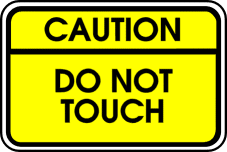
|
The first school rule is this: AT THE START OF THE GAME, DON'T TOUCH YOUR KING-SIDE (f, g and h) PAWNS UNLESS YOU HAVE A VERY GOOD REASON. Watch what happened to the last kid who broke this rule. 
|
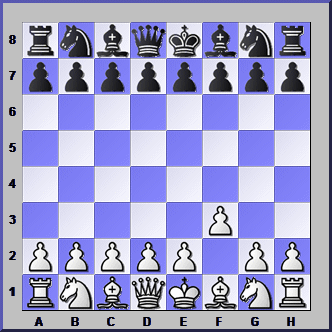
|
White started with f2-f3. Well, it looked as good as anything else on the board. Which move would you recommend for Black?  e7-e5 e7-e5
 f7-f5 f7-f5 g7-g5 g7-g5
 h7-h5 h7-h5 

|
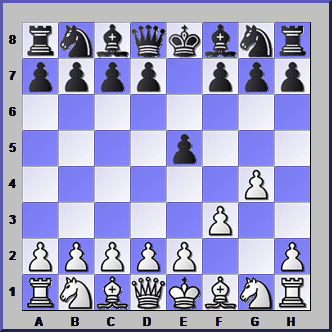
|
Yes, Black played e7-e5 and White's second move was g2-g4. How did Black win the game at once?  Qd8-e7 Qd8-e7
 Qd8-f6 Qd8-f6 Qd8-g5 Qd8-g5
 Qd8-h4+ Qd8-h4+ 

|
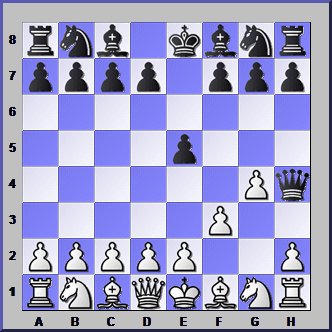
|
Yes, it's CHECKMATE!! This is the quickest way to get mated - in two moves! It's called FOOL'S MATE. Only a fool would play the opening like that. You wouldn't play those moves, would you? 
|
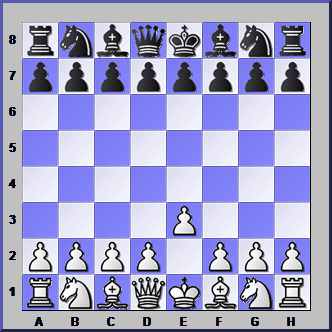
|
Which of these moves would you play if you were Black?  d7-d6 d7-d6
 e7-e6 e7-e6 e7-e5 e7-e5
 h7-h5 h7-h5 

|
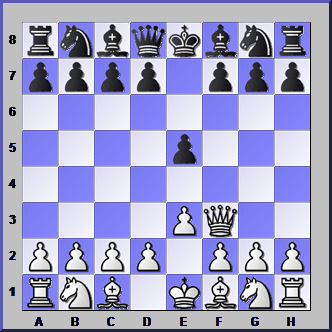
|
So White brings his Queen out instead. I've already given you a big clue for Black's next move. Is it...  Qd8-g5 Qd8-g5
 d7-d5 d7-d5 f7-f5 f7-f5
 Qd8-h4 Qd8-h4 

|
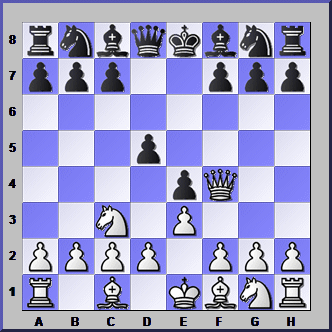
|
Black threatens the queen and White thinks he's found a safe square.
But now Black has a really special move, that THREATENS and TRAPS the Queen. Can you find it? Bf8-d6 Bf8-d6
 Qd8-g5 Qd8-g5 Qd8-f6 Qd8-f6
 g7-g5 g7-g5 

|
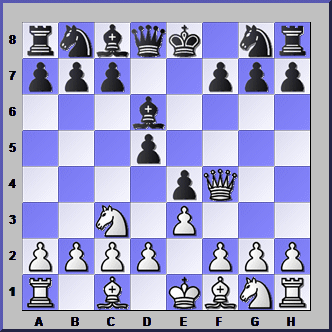
|
A sensational move! Just take a look at White's Queen! Does she have a safe square? If you look carefully at the position you'll find that whatever White does his Queen will be captured next move! 
|

|
And what happens to kids who don't stick a pawn in the middle? They can't find good squares for their pieces They can't find good squares for their pieces They can never ATTACK the other guy They can never ATTACK the other guy They get sent to bed without any supper They get sent to bed without any supper All of these All of these 

|

|
 They often lose their queen early in the game They often lose their queen early in the game Their friends laugh at them for being so stupid Their friends laugh at them for being so stupid The bogey man comes to get them The bogey man comes to get them All of these All of these 

|

|
Here are some more rules: Don't make too many pawn moves in the opening Don't move pieces twice in the opening without a good reason Develop your Knights IN THE CENTER, NOT on the side 
|
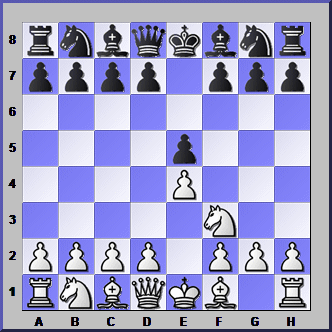
|
Now for a quick test on the school rules. Choose a move for Black in this position.  Qd8-f6 Qd8-f6
 f7-f6 f7-f6 Nb8-c6 Nb8-c6
 Bf8-c5 Bf8-c5 

|
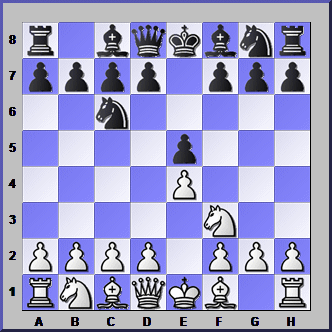
|
Next question: which of these moves would you play for White here? a2-a4 a2-a4
 Nb1-a3 Nb1-a3 Nf3xe5 Nf3xe5
 Bf1-c4 Bf1-c4 

|
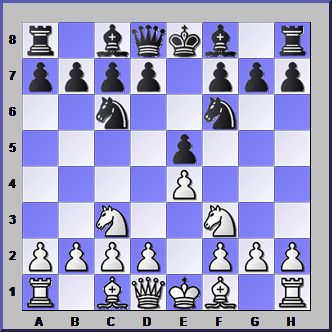
|
Final question: Choose a move for White here. d2-d4 d2-d4
 Nf3-g5 Nf3-g5 Ke1-e2 Ke1-e2
 h2-h4 h2-h4 

|

|
|